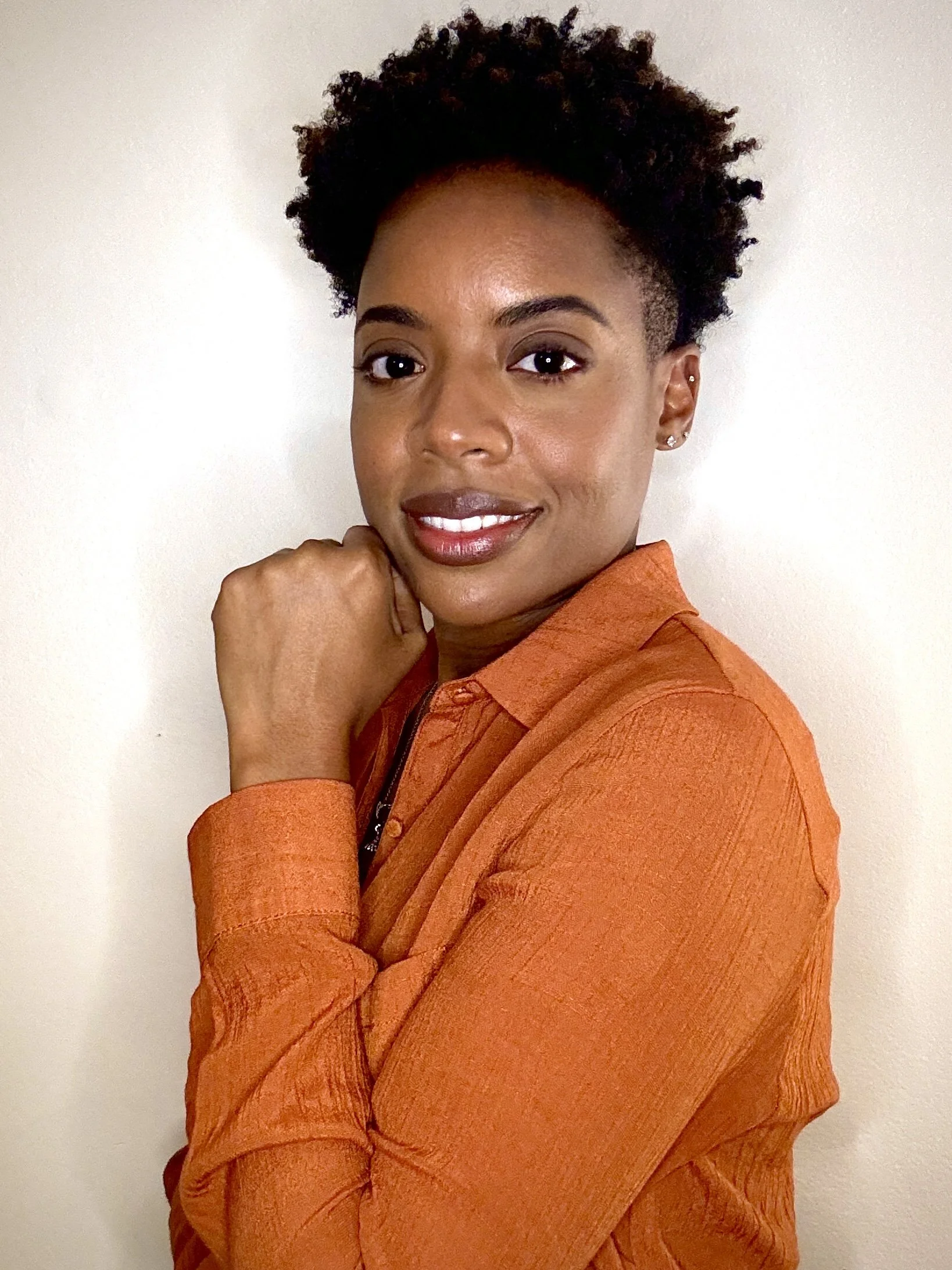Evonnia
Woods, PhD
Social Movement Builder
Nearly 15 years of experience integrating education, research, and community organizing to advance economic, racial, and reproductive justice
Dr. Woods supports groups, organizations, and community leaders as an educator, researcher, and organizer, all of which combine to form her integrative movement building approach rooted in Black feminism. She simultaneously started her PhD program, joined a local economic justice organization, and began working with a range of campus leaders to increase student participation in campus decision-making processes. While studying and teaching about social inequalities and movements, she worked on community oriented issue and legislative campaigns like those to protect and expand social security and Medicaid, raise the minimum wage, address student loan debt, and gain environmental protections. She also cofounded and served as a leader in several campus groups and organizations, one of which included laying the groundwork for and launching what would become the graduate employee union. She went on to work as an organizer and opposition researcher on reproductive justice issues like increasing birth control and abortion access, addressing Black maternal and infant mortality rates, and HIV decriminalization at a startup. Now, she primarily focuses on how health equity and justice tie into protecting and expanding our democracy.
BIOGRAPHY
LEADERSHIP & SERVICECouncil Member | Sociologists for Women in Society
2026—
Court Appointed Support Advocate (CASA) | Heart of Missouri CASA
Co-chair | Academic & Social Justice Committee | Sociologists for Women in Society
2025—
Member | Advisory Board | Sociologists for Women in Society
2024-2025
Mentor | First Generation Mentoring Program | Washington University, St. Louis
2024
Chair/Cochair | Social Action Committee | Sociologists for Women in Society
2023-2025
Member | Graduate Student Paper Award Committee | Midwest Sociological Society
2021
Member | Public Transit Advisory Commission | Columbia, MO
2017 - 2020
Member | Social Action Committee | Sociologists for Women in Society
2016—2025
Graduate Student Representative | Chancellor’s Ad Hoc Joint Committee on Protests, Public Spaces, Free Speech, and the Press | University of Missouri-Columbia; Recipient of MU Faculty Council’s Shared Governance Award
2016 - 2017
Big Sister | Big Brothers, Big Sisters Inc. | Columbia, MO
2012 - 2013
Member | United Way GenNext | St. Louis, MO
2011
Counselor | Camp Little Giant | Makanda, IL
2009
Big Sister | Big Brothers, Big Sisters Inc. | Carbondale, IL
2005—2008
HONORS & AWARDS2025
Spark Prize | Missouri Foundation for Health
2017
Social Actions Initiative Award | Sociologists for Women in Society
2016
Rollins Society Inductee | Graduate and Professional Council | University of Missouri
2008
Alpha Kappa Delta Inductee | International Sociological Honor Society
2007
President’s Mentoring Initiative Award | Family and Youth Services Bureau/US Department of Health and Human Services
National Big Sister of the Year Nominee | Big Brothers, Big Sisters
EDUCATION2020
PhD in Sociology [via Departmental Teaching Assistantships]
University of Missouri-Columbia
Specialization Areas: (1) Social Inequalities (2) Political Economy, Power & Movements
Minor: Women’s and Gender Studies
2019
Graduate Certificate: Nonprofit Management
University of Missouri-Columbia
2009
MA in Sociology [via the Proactive Recruitment of Multicultural Professionals for Tomorrow (PROMPT) Fellowship]
Southern Illinois University-Carbondale
2006
BA in Psychology
Southern Illinois University-Carbondale
Minors: Sociology and History
2003
AA in Liberal Arts [via the Advanced Honors Escrow Program]
Shawnee Community College, Ullin, IL
INTEGRATIVE APPROACH*
-
EDUCATE
From developing college courses to developing trainings and workshops, advancing social justice is always the goal.
-
RESEARCH
Academically trained qualitative researcher and experienced opposition researcher raising the bar for accountability.
-
ORGANIZE
An unwavering commitment to social justice is exemplified by a history of campus organizing, and continuation of community organizing.
*Inadequacy of language and the preference for mutually exclusive categorical thinking presents the challenge of dividing my work history and experience into an either/or framework when nearly all of it has been and is designed and implemented within a both/and framework.


